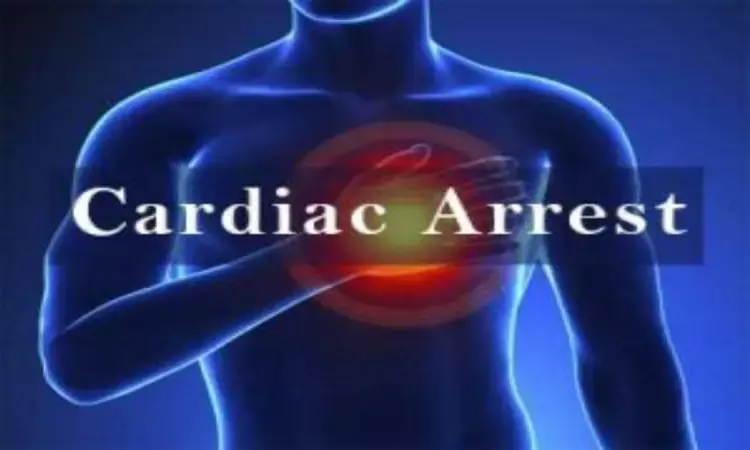- Home
- Medical news & Guidelines
- Anesthesiology
- Cardiology and CTVS
- Critical Care
- Dentistry
- Dermatology
- Diabetes and Endocrinology
- ENT
- Gastroenterology
- Medicine
- Nephrology
- Neurology
- Obstretics-Gynaecology
- Oncology
- Ophthalmology
- Orthopaedics
- Pediatrics-Neonatology
- Psychiatry
- Pulmonology
- Radiology
- Surgery
- Urology
- Laboratory Medicine
- Diet
- Nursing
- Paramedical
- Physiotherapy
- Health news
- Fact Check
- Bone Health Fact Check
- Brain Health Fact Check
- Cancer Related Fact Check
- Child Care Fact Check
- Dental and oral health fact check
- Diabetes and metabolic health fact check
- Diet and Nutrition Fact Check
- Eye and ENT Care Fact Check
- Fitness fact check
- Gut health fact check
- Heart health fact check
- Kidney health fact check
- Medical education fact check
- Men's health fact check
- Respiratory fact check
- Skin and hair care fact check
- Vaccine and Immunization fact check
- Women's health fact check
- AYUSH
- State News
- Andaman and Nicobar Islands
- Andhra Pradesh
- Arunachal Pradesh
- Assam
- Bihar
- Chandigarh
- Chattisgarh
- Dadra and Nagar Haveli
- Daman and Diu
- Delhi
- Goa
- Gujarat
- Haryana
- Himachal Pradesh
- Jammu & Kashmir
- Jharkhand
- Karnataka
- Kerala
- Ladakh
- Lakshadweep
- Madhya Pradesh
- Maharashtra
- Manipur
- Meghalaya
- Mizoram
- Nagaland
- Odisha
- Puducherry
- Punjab
- Rajasthan
- Sikkim
- Tamil Nadu
- Telangana
- Tripura
- Uttar Pradesh
- Uttrakhand
- West Bengal
- Medical Education
- Industry
Researchers develop new risk tool for cardiac arrest patients

Experts have developed a risk score to predict cardiac arrest patient outcomes.
The study published today in European Heart Journal, by a team of researchers from King's College London and King's College Hospital, details a novel risk score for heart attack centres to predict brain damage in patients who have had an out of hospital cardiac arrest.
Out of hospital cardiac arrest is a major public health challenge and can lead to considerable morbidity and mortality. Patients have an extremely high risk of long-term brain damage after cardiac arrest, but this can be difficult to predict early on after admission.
The risk score, known as MIRACLE2, has been developed to help clinical decisions, improve selection of appropriate treatments and inform family discussion early after admission.
The study examined data on 400 patients who have had an out of hospital cardiac arrest and been treated at King's College Hospital and then identified characteristics of patients that developed brain injury. The team then performed prediction modelling to create a score that could be readily applied by clinicians on arrival to a heart attack centre.
The MIRACLE2 predicted brain injury with high accuracy and when validating the performance of the score in nearly 500 patients from two other heart attack centres from Europe, the score performed equally well.
The risk score will now be validated in a larger number of patients and potentially across different healthcare settings, for example by ambulance staff in the community. Once the performance of the score has been checked in these settings, it could be incorporated into future clinical trials and potentially into national guidance.
Nilesh Pareek from King's College Hospital said: "MIRACLE2 is the first practical score which can provide objective risk stratification to support clinicians in making critical decisions for patients with OOHCA. This could be a major step forward in understanding which OOHCA patients to select for invasive treatments, to guide the application of novel therapies and for standardising care across all healthcare settings."
Professor Ajay Shah, BHF Professor Cardiology at King's College London and Director of the King's BHF Centre of Research Excellence, said: "People who suffer a cardiac arrest in the community are among the most serious and complex emergency patients to manage, with a wide range of possible outcomes from complete recovery to possible long-term brain damage. The new risk score developed in our study should greatly aid ambulance teams and emergency heart doctors to make early decisions about the best treatment option for each patient."
Hina Zahid Joined Medical Dialogue in 2017 with a passion to work as a Reporter. She coordinates with various national and international journals and association and covers all the stories related to Medical guidelines, Medical Journals, rare medical surgeries as well as all the updates in the medical field. Email: editorial@medicaldialogues.in. Contact no. 011-43720751
Dr Kamal Kant Kohli-MBBS, DTCD- a chest specialist with more than 30 years of practice and a flair for writing clinical articles, Dr Kamal Kant Kohli joined Medical Dialogues as a Chief Editor of Medical News. Besides writing articles, as an editor, he proofreads and verifies all the medical content published on Medical Dialogues including those coming from journals, studies,medical conferences,guidelines etc. Email: drkohli@medicaldialogues.in. Contact no. 011-43720751


